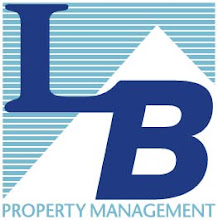Are you complying with the 1988 Fair Housing Amendments Act (FHAA) at the properties you own? The obligations do not end with your leasing practices. This is especially true when you have tenants that have a disability. The rights of people with disabilities and a landlord's obligations to those people are often misunderstood. Part of the reason that there are misconceptions is that the rights of disabled persons are more complex than other protected classes. Landlords find themselves being sued because they do not fully understand that the discrimination not only encompasses refusal to rent and imposition of unequal terms and treatment, but also includes the denial of reasonable accommodations and reasonable modifications. These requests may be made at the time the new tenant is applying, but often the requests are made after the tenant has taken possession of the unit.
Landlords must understand that they are required to make reasonable accommodations and reasonable modifications when a tenant with a disability or their agent makes such a request, whether or not the request was made at the time the tenant signed their lease. The first step in avoiding a discrimination lawsuit is to make sure you and your employees understand the definitions of “reasonable accommodation” and “reasonable modification”. According to the FHAA a reasonable accommodation is “a change, exception or adjustment to a rule, policy, practice, or service that may be necessary for a person with a disability to have an equal opportunity to use and enjoy a dwelling” and a reasonable modification is “a structural change to existing premises, in order to afford a person with a disability full enjoyment of the premises.” If you are unsure whether a request falls under the protection of the FHAA you should contact your attorney and ask them to provide you a legal opinion. I also recommend that you review the Joint Statement issued by the Department of Housing and Urban Development and the Department of Justice which can be found at http://www.teamlink.com/Disability_Accomodations_DOJ.pdf.
Some common examples of modifications and accommodations are listed below:
- Installation of a wheelchair ramp (modification)
- Removal of carpet and installation of hard wood flooring (modification)
- Having a dog or a cat or other assistive animal in the apartment or condo (accommodation)
- Widening a door way (modification)
- Provide a parking space closer to the occupants dwelling (accommodation)
- Request to have third party drop off the rent check rather than tenant personally delivering the check (accommodation)
It is best to start with the assumption that you are going to grant the request for either a modification or accommodation and then go through a check list to determine if the request is “reasonable”. The list below is not all inclusive but gives you some idea about the complexity of what is required of a landlord.
Does the request indicate a relationship between the modification/accommodation and the individual’s disability? If documentation is provided to establish that relationship or the relationship is obvious proceed to #2. If no, ask the requestor to explain and document the relationship. If there is no relationship the request may be denied. I again recommend consulting your attorney or management professional before denying a request.
IMPORTANT! If requesting documentation you may not inquire about the severity of the disability.
Was the request made by or on behalf of a person with a disability? If yes proceed. If no you may deny the request.
Will the modification/accommodation impose an undue financial and administrative burden on you? If yes you may deny the request but make sure you are clear on the requirements to qualify for this exception. It is complicated and the landlord must do to fully comply with the law.
Did you discuss alternatives with the requestor? This is imperative and doing so often leads to an effective result which does not pose an undue burden on the landlord, avoids lawsuits and keeps the tenant happy.
Once a request for a reasonable modification is granted, it is important that a landlord understand who is responsible for the costs associated with the modification and who is responsible for the maintenance of that modification. They are not always the same. In general the rule is that the requesting party is responsible for the cost of making the modification. However, if the modification is in the common area of the property the landlord is responsible for the maintenance of that modification. For example a wheelchair ramp is installed in the parking area. The requestor pays for the installation but the landlord must pay for the on going upkeep and maintenance. The law does state that a landlord may be required to make an accommodation or modification that involves some costs on their part so long as the costs do not pose an undue financial or administrative or a fundamental alteration of the landlord’s operations. When a modification is made that is used exclusively by the tenant, the tenant is typically responsible for the maintenance. Landlords who have made the mistake of passing on the maintenance of modifications made in common areas have found themselves in hot water, even though they happily granted the request for the modification.
When a request is received it is very important that you take each request seriously and that you determine how to respond to that request on a case by case basis. The laws are complex and typically the requestor is far more familiar with those laws than the landlord. When you are unsure about how to respond, and even when you think you are sure, it is a good idea to consult with a property management professional and your attorney. It is much cheaper to get a quick opinion on the front end of an issue like this than to pay for the cost of defending a lawsuit. Plus you end up with happy tenants that appreciate being dealt with professionally.






Don't believe the hype. We have to separate the executives of LB from their employees. I am sure there are some employees of LB that do a good job at their properties, it's not the case with all of their properties and all of their employees. The group of workers we have here at 10817 White Street in Sun Valley CA. don't understand basic business practices, Tenants rights,legal practices,property management procedure, or customer service
ReplyDelete